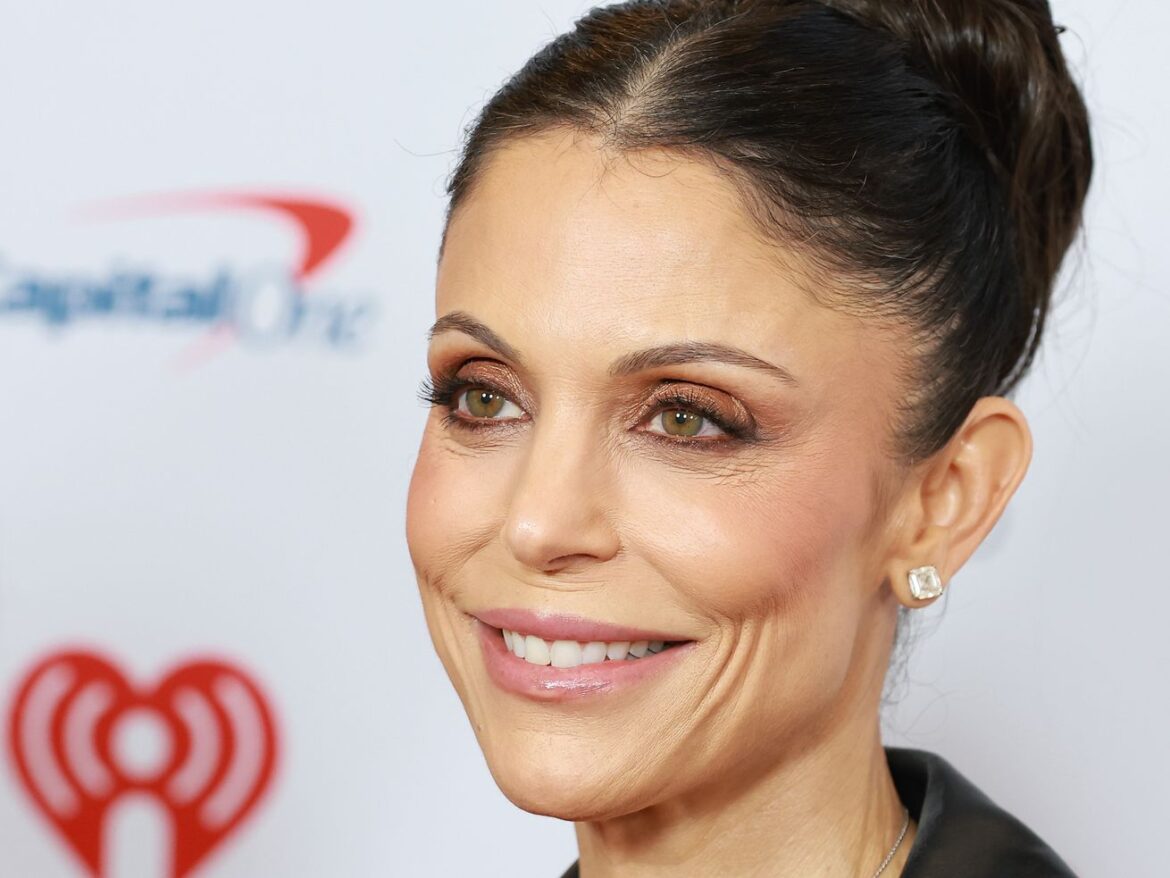Bethenny Frankel’s reality TV star union is easier said than done.
To this day, there’s probably no Bravolebrity — a portmanteau of Bravo and celebrity that denotes the network’s crop of reality stars — who has benefited more from their association with that brand of reality TV than former Real Housewife of New York Bethenny Frankel. And there’s probably no Bravoleb more determined to burn the whole thing down than Frankel herself.
This past summer, the star of eight seasons of RHONY, three seasons of Bethenny Getting Married (subsequently renamed Bethenny Ever After), and one season of Bethenny & Fredrik has pushed for the creation of a reality television star union, saying that she, her Bravo cohort, and other reality TV show stars have been exploited by Bravo and networks for too long. Streaming has made things crystal clear to the former reality star; on NBCUniversal’s Peacock, which houses Bravo’s content, you can watch her anytime you want, and yet Frankel hasn’t seen a dime.
“We signed a contract. Does it mean we should be exploited?” she told Variety in July, explaining that she and other reality stars should be striking. Frankel believes non-actor on-camera talent should be fighting for the same kind of residuals and compensation that SAG-AFTRA and the Writers Guild are asking for. “Networks and streamers have been exploiting people for too long.”
Because of Frankel’s penchant for the limelight and bluster, it’s hard to gauge how seriously she is taking this union idea. In between making news for chaotically sucking crab legs out of a plastic bag in her hotel room, Frankel has also been inviting guests like former co-star and frenemy Jill Zarin and “Scandoval” main character Raquel Leviss on her podcast, ReWives, to point out how manipulative and dastardly reality show producers and network execs can be. On ReWives, which launched in 2022, Frankel reexamines and discusses how the Housewives series are made, often questioning the ethics and behind-the-scenes business that make Bravo’s reality shows. Frankel had a tense reunion with Housewives executive producer Andy Cohen on Watch What Happens Live in December, when Cohen told her: “You’ve been trashing the Housewives publicly for the last three years.”
/cdn.vox-cdn.com/uploads/chorus_asset/file/24906401/1245461205.jpg)
Charles Sykes/Bravo via Getty Images
Whether or not Frankel does create a union — and it appears she and her legal team are more interested in a lawsuit at the moment — she has opened up an important conversation about reality television, the talent reality stars possess, and the cruel industry they’re competing in. Frankel and her reality TV cohort would benefit from a union to protect themselves against abuse, exploitation, and unfair wages, but according to experts, figuring out what that looks like is much easier said than done.
What Bethenny Frankel wants
The primary and clearest demand Bethenny Frankel has brought up as a point of concern with her proposed reality television is pay, specifically residuals — the money a reality show participant theoretically gets when a show they’ve filmed is replayed after airing, the way that actors and writers do. Bethenny appeared on eight seasons of The Real Housewives of New York, and explained that while she was paid per season, she and other Housewives do not receive any residuals despite Bravo airing reruns of episodes she appears on, and Peacock (Bravo’s parent company’s streaming service) having an archive of every season of New York, Atlanta, Orange County, Beverly Hills, New Jersey, Potomac, and Salt Lake City available to stream. Not receiving residuals is reportedly the reality television industry norm.
“From Snooki [Jersey Shore] to Lauren Conrad [Laguna Beach and The Hills] to Kaitlyn Bristowe [The Bachelor], to myself, reality tv has generated millions of dollars and entertained people GLOBALLY and my name and likeness and content are used for years to come for free on episodes where I was paid peanuts for my work,” Frankel wrote on Instagram.
/cdn.vox-cdn.com/uploads/chorus_asset/file/24906403/506950842.jpg)
Dave Kotinsky/Getty Images
Brian Moylan, Real Housewives expert and author of The Housewives: The Real Story Behind the Real Housewives, explained to Vox that reality show contracts are what he believes are “some of the worst contracts in entertainment” primarily due to the lack of supervision. Reality show contestants often don’t have lawyers or agents to look over the terms they’re signing, especially those who signed on back in the early days of reality TV. Back when Frankel first signed on, in 2008, streaming services were barely a blip on the horizon, and the idea that a Housewife might monetize a brand or catchphrase — now fundamental to becoming a star — was unheard of.
Moylan pointed out that Bravo also has what he calls the “Bethenny” rule, named after Frankel. Frankel, who appeared on the first three seasons of RHONY and a second stint of seasons seven to 11, created a liquor and lifestyle brand on the show called Skinnygirl, which she sold in 2009 for an estimated $100 million. In doing so, Frankel inadvertently created a new paradigm, showing future Housewives that they could create and promote a business on air as a means to supplement their fame and income. Moylan explained that post-Bethenny, Bravo now takes a 10 percent cut if any reality participant on the network starts a business while on one of their shows and sells it for more than a million dollars.
In Moylan’s eyes though, there’s a slight that’s even more egregious: the way Bravo monetizes Housewife catchphrases and viral moments.
“Dorinda comes up with ‘I cooked, I cleaned … I made it nice,’ on the fly. That’s something she created. It’s like a story you would write or a song somebody wrote, and now Bravo slaps it on mugs and aprons and socks, selling it on Bravo.com,” Moylan told me. “Dorinda is not getting any of that. So now you’re looking at [catchphrases like] ‘Be cool, don’t be all, like, uncool’ and the ‘dinner party from hell,’ etc. All that shit that Bravo’s monetized — that’s thanks to the women’s emotional and intellectual labor, and those women are getting no benefit from it other than getting re-upped for another season, potentially.”
Frankel and Moylan both make the point that being a Housewife or any other reality television star should be considered a talent. There is no Real Housewives without the Housewives themselves, and a show isn’t successful if the women don’t play their roles. Similarly, there’s no Jersey Shore without Snooki, and no Bachelor or Bachelorette without its contestants. These shows bring in ratings and money for their networks and now, with the age of streaming, are not only available to watch anytime but also are part of the draw to get people to sign up for a service like Peacock.
While Frankel, many of her fellow Housewives, and some other reality stars have commanded high-paying salaries, she argues that they’ve brought Bravo and other networks exponentially more.
What makes a Bravo or reality TV union so difficult
Bravo has no problem paying Housewives. According to one person — who we’ll call Sam — who has worked behind the camera on at least one season of one of Bravo’s Real Housewives franchises, it’s not unheard of for a top-tier Housewife (usually the most popular and longest-tenured) to make up to six figures an episode. Sam requested anonymity so as not to jeopardize their professional relationship with Bravo.
“If you’re on like a long-running show, a Housewife could make between $1 million and $2 million a season,” Sam said, explaining that compared to the rest of the realm of reality television (barring the Kardashians), that kind of salary was top of the market.
/cdn.vox-cdn.com/uploads/chorus_asset/file/24906409/1623805074.jpg)
Jocelyn Prescod/Bravo via Getty Images
“Short of Bethenny though, these women are not great businesspeople,” Sam said, naming The Real Housewives of Atlanta’s Kandi Burruss and Kenya Moore as other money-making exceptions. Sam says that most of these women “are not great at leveraging their appearances into product.” It’s not for a lack of trying, though. “Because it’s so hard to make crazy money in this business right now, everyone is always looking for the loophole to get through and get the network into giving you more money,” Sam said.
The key word Sam used is “leverage,” which is not only central to current Housewife success, but is also crucial to Frankel’s argument and whether or not her proposed union takes off.
In order for a union to function, labor has to have some kind of bargaining power. There have to be some consequences, some buttons to push or levers to pull to try to get management to meet their demands. And the people with real leverage or bargaining power in reality television aren’t popular ex-Housewives like Bethenny Frankel, but currently employed Real Housewives. Unlike a lot of reality television participants, these current stars are on for multiple seasons, have devoted fans, and could be seen as crucial to the show.
“Those are the people who have real bargaining power, because their shows are popular enough and they appear regularly, to the point where a show couldn’t manage without them,” said Catherine Fisk, a professor and expert in labor law at UC Berkeley. “That’s where leverage comes from.”
In Bravo terms that means the multiple-season Housewives like Atlanta’s Burruss and Moore, Orange County’s Shannon Storms Beador, Beverly Hills’s Kyle Richards, and New Jersey’s Teresa Giudice. Lisa Vanderpump and her cast on Vanderpump Rules, thanks to a breakout “Scandoval” season, also count. As do Below Deck cast members like Below Deck Med’s Sandy Yawn, Below Deck Sailing Yacht’s Glenn Shepard and Daisy Kelliher, and longtime cast members on shows like Summer House and Southern Charm. These people are as valuable as reality television show participants can be on Bravo.
Unfortunately for Frankel and those who would like union protections, cast members like Burruss and Vanderpump have said on the record that they don’t support Frankel’s idea of a union. In order to be effective, striking needs some sort of solidarity, especially from seniority.
The other problem for Frankel, and those who would like to see a reality television union at Bravo and beyond, is that any kind of leverage is tempered by an industry where the supply heavily outweighs the demand. Bravo’s shows are an outlier in that most reality TV programs, from American Idol to Survivor to Love Is Blind to Big Brother to Love Island USA to The Circle, cycle in and out contestants season after season. It’s near impossible to build leverage as a reality TV show participant when you’re only on for one season, and doubly difficult when there’s an entire supply of reality contestants waiting in the wings.
“I think the mindset of the industry would be like, ‘Hey, if you don’t want to do this, no problem. Don’t do it. We’ll find 1,000, maybe 2,000, maybe 10,000 other people who would gladly even do this for less,’’ said Steve Schiffman, a professor at Georgetown’s McDonough School of Business. Schiffman has network experience, working as the CEO at National Geographic where he oversaw some reality shows on NatGeo’s various channels.
“There’s a supply and demand economic dynamic here that is not in favor of those who would say, ‘Oh, I want to have some representation,’” he added.
Earlier this summer, Bravo showed that it can do what Schiffman said. It rebooted its entire Real Housewives of New York City franchise, ending the tenures of some of its longest-running Housewives like Ramona Singer, LuAnn de Lesseps, and Sonja Morgan. Those three were reported to appear in a separate RHONY show alongside ex-Housewife Jill Zarin, but instead were shuffled into a Peacock’s Ultimate Girls Trip spinoff. Zarin said that she was unhappy with salary discrepancies among the women, and she was not included in the upcoming Girls Trip show.
Reality television’s problems go deeper than pay
Sam, who has worked on Housewives, explained to me that what struck them about Frankel’s initial comments about the union and her reality television union push is how concerned Frankel was about her own pay and not the shows’ awful working conditions. Long hours, manipulative production practices, mistreatment of crew, psychological abuse, and an actual lack of compensation for those lower on the call sheet are all the norm in reality television.
If Bethenny were truly serious about a reality television show union, Sam told me, a more convincing argument would address those things. “Part of the reason I can go to bed at night is because these women are taken care of,” Sam said of the Housewives. “These women are compensated, and these women are creative partners.” Sam explained that participants and crew on Netflix, VH1, and TLC’s reality shows are not treated with the same care or respect.
While Frankel’s main complaint was pay, her legal team wrote a letter to Bravo’s parent company NBCUniversal on August 4 that stated it was investigating “depraved mistreatment” of the company’s reality stars and warned that a “day of reckoning” has arrived. They allege that cast members and production crew members who worked on the company’s reality shows have been subject to food and sleep deprivation, nonconsensual sharing of sexual audio or video, cover-ups of acts of sexual violence, and denied mental health treatment. On August 20, Frankel’s legal team threatened NBCUniversal that a lawsuit was impending and more reality stars have joined Frankel — talk of establishing a union has since softened while the lawsuit has ramped up.
To Sam, Frankel’s unionization plea felt a bit hollow because it also didn’t take into account how difficult and wide-ranging reality television show unionization would actually be.
While Bravo owns the shows and sets salaries for its stars, the work to create these reality shows falls on production companies and the teams of editors, producers, and camera operators who bring these programs to life. Many of those companies are nonunion, and flipping them into union shops might require a broader effort among said editors and producers. If a Bravo union somehow manifests at these production companies, will other shows that these production companies create also unionize? And has Frankel even thought about what’s happening at other places?
“They fucking torture those kids on The Bachelor and The Bachelorette,” Moylan, the Housewife and reality television expert, told me. “People say they know what they signed up for, because we’ve watched 30 seasons of the show. But yeah, you don’t see them getting starved, fed alcohol, and asked the same question 17 different times in 17 different ways to get exactly the answer they want so that they can make you look like an asshole on television!”
Moylan, who explained that he isn’t a legal expert by any means, has his own doubts about what a reality television show union would look like. It’s also not lost on Moylan that a unionization effort would require Housewives, who are often cast on the show to backstab, fight, and humiliate their costars, to band together.
“There is a fair amount of exploitation on these shows that we benefit from,” he told me. “Let’s say we get a contract that says, ‘If you have reality stars on a show, they need to be fed every four hours.’ Okay, that sounds reasonable. Well, what about Survivor? Will Survivor have to start feeding people? And if they’re feeding people that isn’t just Big Brother? Then it gets into questions like, okay, so people can consent to not being fed on Survivor, but then can you just consent to everything?”
When I asked Fisk, the labor law expert at UC Berkeley, about what a reality television union would even look like, she was a bit more optimistic. She drew a parallel to how extras and background performers are protected.
“I assume it would look like the contracts that [SAG-AFTRA] has negotiated for various kinds of actors who work super episodically or not very often or for a period of time on this and then not again. I’m thinking of the group of actors formally known as extras,” Fisk told me. “Their minimum wages would be part of the contract, protection against abuse in the workplace, residuals, of course, for reuse of the material — all the same stuff that is in a SAG-AFTRA contract, and they could just adapt it to take into consideration the different nature of the work.”
/cdn.vox-cdn.com/uploads/chorus_asset/file/24906422/78307349.jpg)
David McNew/Getty Images
Other labor experts I spoke to explained to me that a minimum master contract might be more sustainable than creating a new contract for each show and each new show that comes into creation. From there, negotiations could theoretically take place on an individual basis, not unlike the way professional sports work.
Again, this is all of course theoretical and hypothetical since no one, not even Frankel, has given us an idea of what a contract would look like. But Fisk did explain to me that SAG-AFTRA, which has expressed interest in helping Frankel and reality television participants organize, would greatly benefit from helping reality show participants unionize.
“I think there may be an incentive to do that, in part, because they have to recognize that there is a substitution or a potential substitution problem where the producers are clearly going to substitute reality shows for scripted shows, the longer this strike goes on — they did that in the 2007–2008 strike,” Fisk told me.
It comes back to leverage. If SAG-AFTRA were able to organize reality TV or help unionize reality TV, it would give them an edge over the management that would normally pit the two against each other. For SAG-AFTRA, it would take away that competitive scenario.
“This is true for every union or every group of employees that recognizes that if they use their leverage they have as a union, the company is just going to substitute nonunion labor for their work,” Fisk said. “You always have to look at who the nonunion labor is and say, ‘Can we organize them and can we improve their working conditions? And if they unionize, it prevents the degradation of our working conditions.”
Fisk reminded me that talk about the union is always easier than the reality of organizing, negotiating, and banding together to make one. The Screenwriters Guild took some nine years to secure its first contract in 1942, and that fight is still ongoing today.
In nine years, there’s no telling what reality TV might look like — what TikTok stars might have become Real Housewives, what new cause will have captured Frankel’s attention, or how much worse (or better) it’ll get for the genre’s biggest stars.



